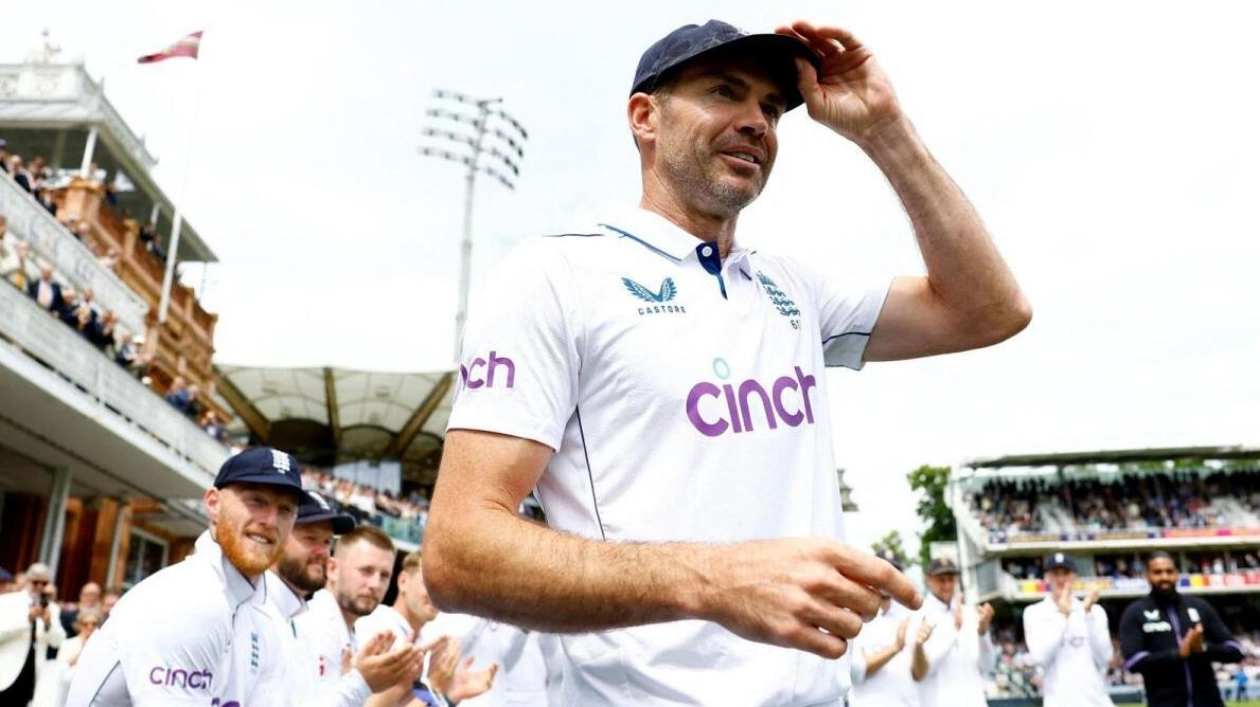Thousands flocked to see the remarkable fast bowler James Anderson on his final day of Test cricket, and many remained at Lord's long after England had delivered a crushing innings victory over the West Indies. A massive crowd gathered in front of the Pavilion, eager for a final look at their hero, considering that Anderson, at 41, has been a constant in England's Test cricket for two decades, a period during which an entire generation of fans has never known a time without him. He obliged by stepping out onto the England dressing-room balcony.
Anderson concluded his international career with a resounding victory over the West Indies in the first match of the three-Test series. He then bid farewell one last time at the 'Home of Cricket', where he made his Test debut in 2003, after Joshua Da Silva became the last of his 704 Test wickets—all achieved with a bowling action that has remained largely unchanged since his early days. No other fast bowler has taken more Test wickets, with only legendary spinners Shane Warne (708 wickets) and Muttiah Muralitharan (800) ahead of him in the all-time list.
"It's been quite emotional... the reaction from the crowd was pretty special," Anderson remarked. "I'm really proud because playing for over 20 years is an incredible feat, especially for a fast bowler, and I'm just happy that I've made it this far." Richard Thompson, chairman of the England and Wales Cricket Board, hailed Anderson as "quite simply the best Test pace bowler there has ever been." Given Anderson's 188 Test appearances, only India's Sachin Tendulkar, who as a batsman had a less physically demanding role, has played more (200 games) in this format.
However, some might argue that Thompson's assessment is clouded by patriotic sentiment. Anderson's career has overlapped with the introduction of England central contracts, which meant he did not have to combine Test duty with county cricket to the same extent as previous generations of England fast bowlers. For instance, the great Fred Trueman, who was the first to take 300 Test wickets, averaged 21.57 runs per wicket in his 67 Tests while also bowling thousands of overs for Yorkshire during the 1950s and 1960s, when only six nations competed in the five-day game compared to today's 12.
Anderson averaged 26.45, with far less workload at Lancashire. There have been many exceptional fast bowlers from other countries, such as West Indies' Malcolm Marshall, who took 376 wickets in 81 Tests at 20.94 while also being a key player for Hampshire's attack. Yet, there is no denying that Anderson, who relied more on his exceptional ability to generate late movement rather than sheer pace, deserves his place in the conversation.
As a team player, Anderson is unmatched, and his reaction to missing out on a fairytale finish to his Test career was telling. He had a chance to take the decisive wicket, but instead dropped a return catch offered by Gudakesh Motie. It was debutant Gus Atkinson who concluded the match on Friday, with the Surrey fast bowler finishing with match figures of 12-106, surpassing Anderson's career-best haul of 11-71.
"Gus actually apologised to him for taking that last wicket," said England captain Ben Stokes. "He's someone who loves to see other people do well. I'm sure he'd have loved to have that fairytale ending that Broady got last year, but for him, seeing a young lad come in and take 12 wickets on debut, he'd have really enjoyed that as well. He's a great player, a great person, and a great man."






